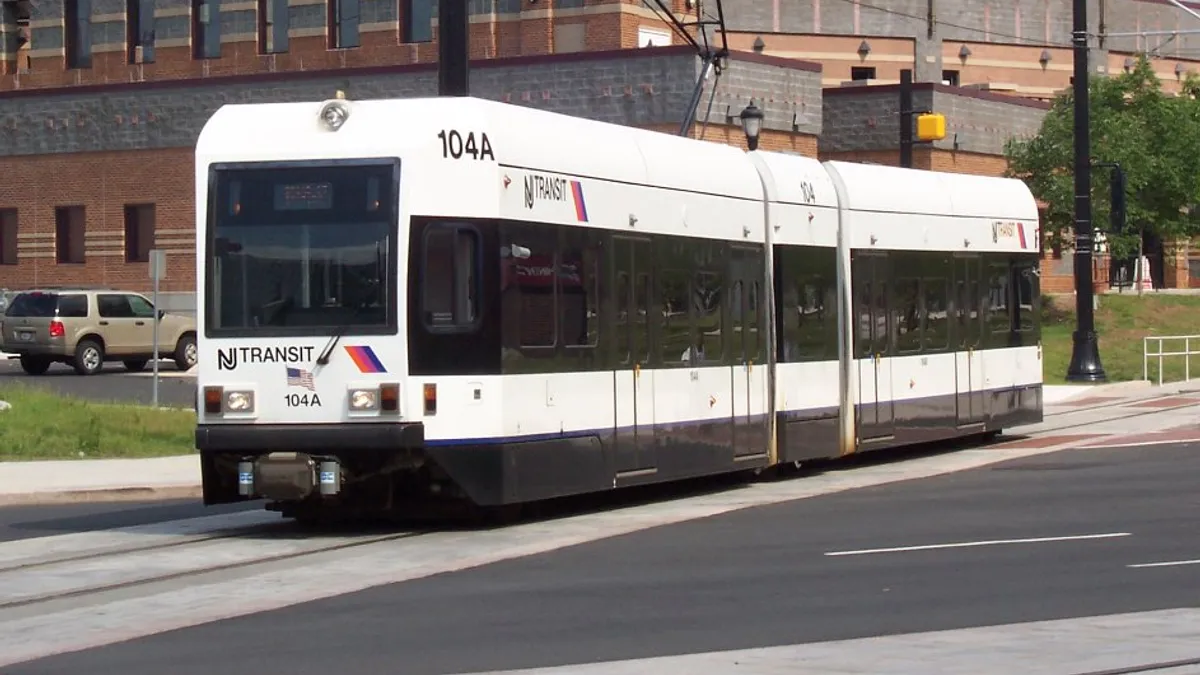Dive Brief:
- The New Jersey state assembly passed a bill Monday that would allow the state's largest cities to impose a parking tax to fund capital improvements for pedestrian access to public transit stations. That could include — but is not limited to — bridges, tunnels, platforms, elevators, escalators, stairways and walkways.
- Cities would have the authority to impose the 3.5% tax on top of fees paid at public and private parking facilities, but not at a private "one- or two-family dwelling." Cities also could charge the new tax on top of existing parking taxes, except during special events. Some exceptions and discounts would be available.
- The tax only applies to cities with populations over 100,000 according to the U.S. Census Bureau's most recent American Community Survey. The legislation says that currently covers six cities: Newark, Jersey City, Paterson, Elizabeth, Edison and Woodbridge.
Dive Insight:
The bill does not mandate that cities over 100,000 residents adopt the tax, but rather it gives them the option to do so. But that puts cities in a potentially awkward position. If they don't adopt the tax, they would be turning down money for infrastructure improvements. If they impose it, they could rile citizens who are already tax-weary. The six affected cities have some time to figure out their strategies because the bill still has to pass several hurdles before becoming law.
The New Jersey House narrowly passed the bill — 41-33, the bare minimum of votes required for legislation to advance in the House — and it now goes to the Senate for consideration. While this does put put the measure one step closer to becoming law, there's no guarantee the Senate will be on board. The Senate's version of this bill, S3507, has not yet made it to committee.
Proponents of the legislation say it would both increase access to mass transit and improve pedestrian safety. Opponents say residents are tired of new taxes and the measure will increase their financial burden, and that the regular state budget should pay for the pedestrian improvements. New Jersey was just ranked the state with the highest property taxes.












